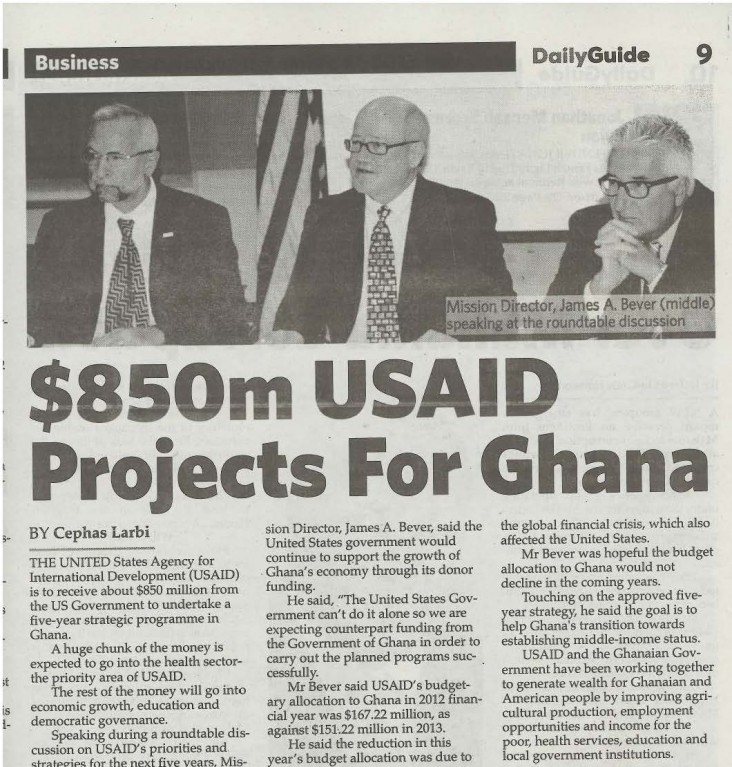
For Immediate Release
Accra, Ghana — During a press roundtable briefing, the U.S. Agency for International Development (USAID) presented USAID Ghana’s new Country Development Cooperation Strategy (CDCS) for 2013-2017. The U.S. Ambassador to Ghana, Gene Cretz, introduced James Bever, Mission Director for Ghana and Alex Deprez, Mission Director for the West Africa Region, both of whom outlined their mission’s portfolios while discussing budget updates and recent development achievements.
In the coming year, USAID|Ghana will commit over $150 million as part of a continuing partnership with the Government of Ghana and its people--to achieve shared objectives in democracy and governance, education, health and economic growth. Bever stated “USAID’s first funding commitment to Ghana, under the new strategy, in the amount of $45 million, has been allocated to the health sector and submitted to the Ministry of Finance for signature”. The first commitment of health funding is just part of USAID’s anticipated total contribution to Ghana’s development under its CDCS of up to $850 million by 2017, subject to availability of funds and U.S. Congress annual approval.
USAID has agreed to work with the Government of Ghana on four objectives: equitable improvements in health status; sustainable and broadly shared economic growth; improved reading performance in primary school; and strengthened responsive democratic governance.
The USAID|West Africa Regional mission, also located in Accra, benefits Ghana through its focus on transboundary issues such as increasing trade, countering violent extremism, and addressing common health challenges. Deprez explained how the mission works closely with regional organizations, such as the Economic Community of West African States (ECOWAS) and the West and Central African Council for Agricultural Research and Development (CORAF/WECARD), to build their institutional capacity to manage multi-country issues and harmonize major policies.
During the press conference, both mission directors reaffirmed the United States’ strong support for the policies and plans the Government of Ghana has put in place to improve health and education services for its citizens and its shared objective to help generate prosperity for the Ghanaian people.







Comment
Make a general inquiry or suggest an improvement.